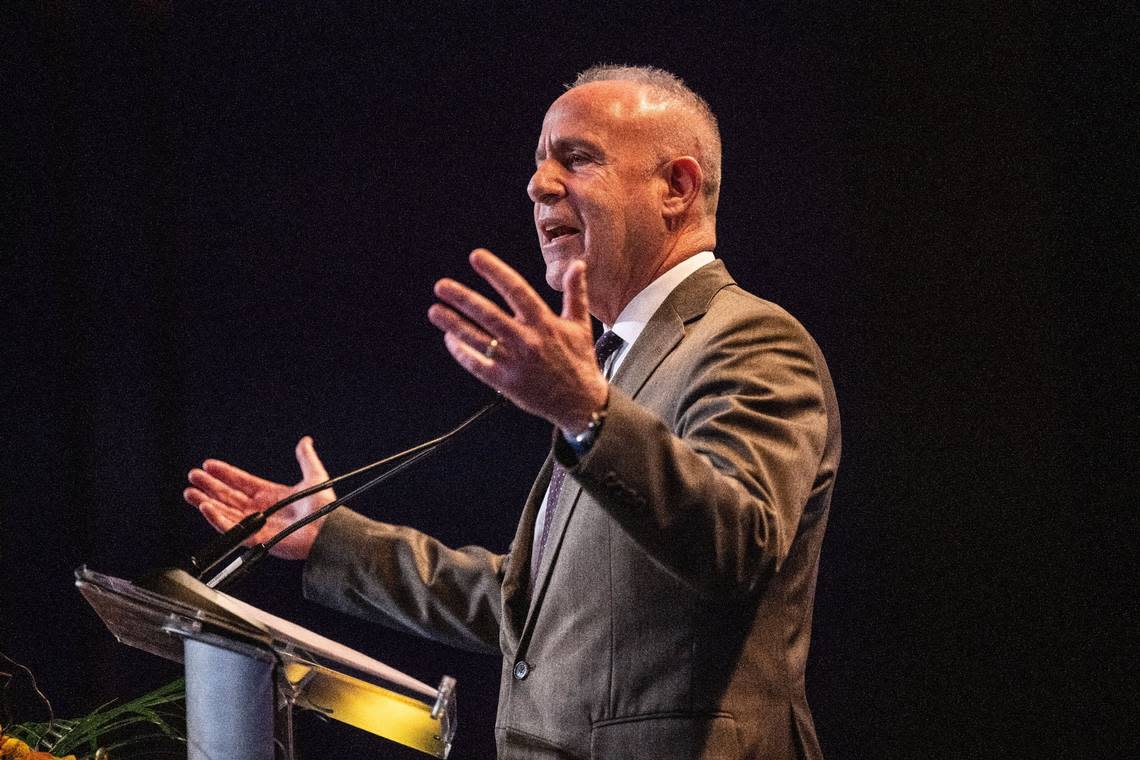Bee Opinionated: Local electeds sue to hide donors + who will be the next mayor of Sacramento?

We send Bee Opinionated to newsletter subscribers first. Get it in your inbox before it publishes online: Sign up here.
Hello hello again, and since I’m writing this newsletter the Friday before you see it – Happy St. Patrick’s Day! I hope your weekend was filled with fun, friends, rainbows, unexpected wealth and minimal pinching.
Last week the editorial board questioned why two locally-elected politicians are suing the California Fair Political Practices Commission to stop a new law from taking effect.
California Senate Bill 1439 was enacted on Jan. 1, and slightly amends the 1974 Political Reform Act to require local elected leaders to disclose campaign and personal contributions made to them.
Opinion
The key part of the law is this: Local elected officials can no longer vote on issues before them if said issues involve individuals or companies that contributed more than $250 to them within 12 months of a vote. They would have to recuse themselves, a common-sense move by the legislature and governor to save local elected officials from themselves by preventing them from voting on issues within a year of getting money from people with business before them.
The Family Business Association of California, the California Restaurant Association, the California Retailers Association, the California Building Industry Association, the Sacramento Regional Builders Exchange and several other building and business associations have signed on to a lawsuit against SB 1439.
But the list of plaintiffs also includes two familiar names: Sacramento County Supervisor Patrick Hume and Rancho Cordova City Councilmember Garrett Gatewood.
But why would these two oppose a law that requires transparency of them in their political donations? Maybe it’s because both of them have taken so much money from local developers that this new law would actually inhibit them from performing their elected duties as required.
In court documents, Hume stated as much, admitting that “his duties as an elected official are significantly impaired” by the new law and that “(u)nder SB 1439, such contributions will require Plaintiff to recuse himself from making certain decisions required to be made by the County Board of Supervisors.”
High-Stakes Guess Who
“Will Darrell Steinberg run for a record third term? Or will he pursue another achievement in a distinguished career and trigger a free-for-all among a slew of potential candidates? There is no great enthusiasm for either possibility at the moment.”
California Opinion Editor Marcos Bretón wrote last week about the anyone’s-game that is the Sacramento mayoral race, coming up in less than a year.
“At least right now, there is no one in the private sector who appears poised to replicate what (Kevin) Johnson did more than 15 years ago. Johnson was not only the first Black mayor in city history, but he also was a political anomaly. Every other person elected mayor in the last generation of city leaders in Sacramento — Steinberg’s generation — came up through the ranks of local politics. If Sacramento stays true to form, then the names being tossed around town as potential mayoral candidates should sound familiar.”
Bretón names former state Sen. Richard Pan, Assemblyman Kevin McCarty, former Councilmen Jeff Harris and Steve Hansen and former Insurance Commissioner Dave Jones as possible contenders. Maggy Krell — a former supervising deputy attorney general of the Special Crimes Unit — has also been mentioned.
The city of Sacramento, divided by the issue of homelessness, is “a terribly difficult place to be the mayor,” Bretón wrote.
“Too many residents believe that the mayor runs the city when that is not true. Insiders know that the city charter empowers the unelected city manager to run Sacramento, and they want to keep it that way, even as they complain about Steinberg — to his face and behind his back.”
Opinion of the Week
“...Rather than fight back against these attorney generals, Walgreens capitulated.” — Erwin Chemerinsky, dean and professor of law at the UC Berkeley School of Law, writing about Walgreens’ decision to stop selling the abortion drug mifepristone in certain, conservative-controlled states. That decision led Gov. Gavin Newsom to announce his administration would cancel a $54 million contract between the state and Walgreens.
Got thoughts? What would you like to see in this newsletter every week? Got a story tip or an opinion to tell the world? Let us know what you think about this email and our work in general by emailing us at any time via opinion@sacbee.com.
See ya next week,
Robin Epley

